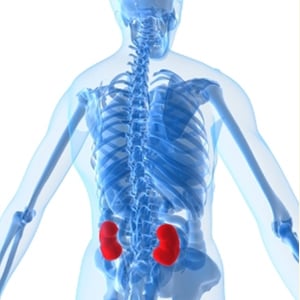
However, regular screening and comprehensive medical cover can mitigate the impact the disease may have on someone’s life.
Ahead of World Kidney Day on Thursday 14 March 2013, Dr Dominique Stott, executive at PPS Insurance, says that while medical schemes are required by law to cover the diagnosis, medical management and medication of chronic renal failure, as part of the chronic disease list, the extent to which they do so is dependent on the option or plan the patient has chosen.
High risk patients should ensure medical cover
“It is important for anybody who is at a high risk of developing kidney disease to ensure that they are comprehensively covered for all treatment and any associated costs.
It is recommended for these individuals to also take out a dread disease benefit which will pay a lump sum at a specific stage of the chronic kidney disease to help pay for additional expenses, which can be substantial.”
Stott says that it is essential for those who are deemed most likely at risk, such as those with hypertension or diabetes or those with a family history of related diseases, to get screened. “Generally speaking, chronic kidney disease progresses over many years and there is no cure.
Early detection and treatment prevents further damage
However, if the disease is detected early and the patient is given the proper treatment, it is possible to prevent further damage to the kidneys or at least slow down the process.”
She says that chronic kidney disease is most commonly brought on by other diseases such as hypertension and diabetes mellitus.
“Hypertension and diabetes may be referred to as “silent diseases”, where the patient may not feel any particular symptoms until the disease has reached an advanced stage and the kidney function has already been significantly affected.”
People should look at their family history
“While people should take note of their family history and other risk factors, it is also important to note that kidney failure in the black population is actually four times higher than any other population group, due to the high incidence of hypertension within this group. Therefore, close monitoring of hypertensive patients is important.”
In a six year study of patients with chronic kidney diseases by the SADTR, hypertension was the cause of chronic kidney failure in 4.3% of Whites, 34.6% of Blacks, 20.9% of Coloureds and 13.8% of Indians.
She says that hypertension currently affects about 25% of the adult population and is the cause of chronic kidney failure in 21% of patients in renal replacement therapy (both dialysis and transplant) in the SA Registry.
“By controlling hypertension and diabetes, the rate of progression of kidney disease can be slowed down. This means that taking the medication prescribed for the conditions and not ignoring the long-term implications of poor disease control.”
Press release




 Publications
Publications
 Partners
Partners










